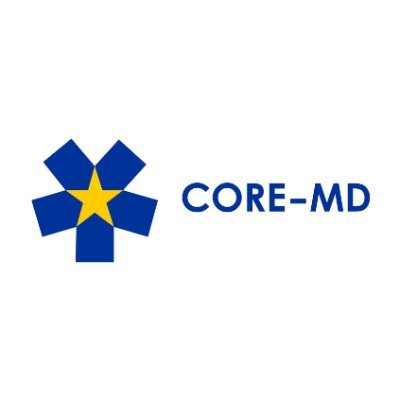SPECIAL YOUNG EAP BLOG | COMMISSIONER VYTENIS ANDRIUKAITIS: THE FUTURE OF CHILD HEALTH IN EUROPE
October 11, 2019

This month, EAP and Young EAP are honoured to have the European Commissioner for Health and Food Safety, Vytenis Andriukaitis, authoring a special blog article on the future of child health in Europe.
We thank Commissioner Andriukaitis for this unique opportunity, and for the very inspiring September webinar with Young EAP in September, which can be watched in full here.
THE SITUATION
Europe provides a safe environment for our children. According to Eurostat, 95% of children in the European Union in 2017 were in ‘good’ or ‘very good’ health – with the remaining 5% facing health problems.
While these numbers make encouraging reading, there is more we can do.
MAIN CHILD HEALTH CHALLENGES IN EUROPE
A major obstacle to childhood health is obesity. Poor lifestyles and diets, lack of physical activity, as well as socioeconomic factors are the root causes of this problem. Since the 1980s, its prevalence has more than tripled in many European countries. This alarming trend is not helped by the knowledge that physical activity tends to decrease between the ages of 11 to 15 in most European countries.
Social exclusion is another factor that influences child health. Living in deprived and remote areas – with limited access to basic services such as healthcare and social services facilities – are aspects of poverty that may represent key factors in social exclusion. As of 2016, more than half (57%) of young people still felt marginalised. Within the EU, the highest levels were reported in countries that have battled severe recession. In addition, socioeconomic status has a strong impact on young people’s risk of depression.
Adolescents’ heavy alcohol consumption also remains an issue, with nearly 2 out of 5 reporting at least one ‘binge drinking’ event in the past month. While smoking rates have decreased somewhat in the EU since 2007, the trend of illicit drug use has remained stable in this age group.
Rare diseases such as rare cancers, adversely affect mainly children: 75% of rare diseases affect children, while 30% of rare-disease patients die before the age of five. These figures are stark and demand vigilance.
Disinformation also has a detrimental effect on children health. Coverage for key childhood vaccines has been declining recently, with outbreaks of vaccine-preventable diseases such as measles on the rise (almost tripled worldwide in the last year). The spread of false information – on social media in particular – is playing its role in putting our children’s health at risk.
EU ACTIONS TO IMPROVE CHILD HEALTH IN EUROPE
The European Commission is taking action.
For example, the Audio-visual Media Services Directive aims to reduce the exposure of children to aggressive marketing of foods high in fat, sugars or salt, while the EU Action Plan on Childhood Obesity 2014-2020 has made strides in combatting childhood obesity.
In 2017, over 900 specialised medical teams from all across Europe joined forces in the European Reference Networks to ensure an effective tackling of rare diseases, including rare childhood diseases.
A lot has been done but we should not stop here. In tackling tobacco, cannabis and alcohol use among adolescents, measures implemented in some Member States such as plain packaging and advertising restrictions are already yielding dividends. However, these measures among others should be rolled out at EU level in order to see increased benefits.
To reduce disparities in our societies, we need to focus on young people who experience marginalisation through the European Social Fund.
We must also provide effective, transparent and objective information to the public to empower healthcare professionals at all levels as well as the media to fight false and misleading information.
At present, up to 7% of EU health budgets are spent on diseases linked to obesity, while 3% is dedicated to prevention. These figures, especially the amounts dedicated to prevention and promotion of healthy lifestyles, must be improved.
Through these steps, we can continue to lay the path to a healthier Europe for our children.
About the author:
Vytenis Povilas Andriukaitis
Vytenis Povilas Andriukaitis was appointed European Commissioner for Health and Food Safety in November 2014.
Born in 1951, Vytenis Andriukaitis graduated in medicine in 1975, specialising in cardiovascular surgery in 1989, which he practiced for more than 20 years. He also got a History degree from Vilnius University in 1984. His political engagement started in 1976, and he was one of the founders of the Lithuanian social-democrat party.
In 1990 he was elected to the Supreme Council of the Republic of Lithuania, which preceded the Lithuanian Parliament; and was one of the co-authors of Constitution of the Republic of Lithuania, adopted in 1992, as well as a signatory of the Independence Act of Lithuania.
Andriukaitis was a Member of Parliament for six mandates. During that period, he was also the Deputy Chairman of Committee on European Affairs, member of the Foreign Affairs Committee, and Vice-President of Social-Democrat party.
Vytenis Andriukaitis has also led the Lithuanian delegation to the Convention on the Future of Europe. From 2012 to 2014, he was Minister for Health.
Vytenis Andriukaitis’ full biography is available on the European Commission website.
You can follow Vytenis Andriukaitis on Twitter.


